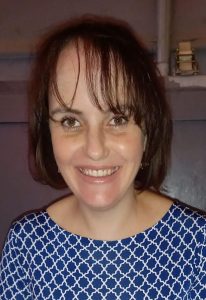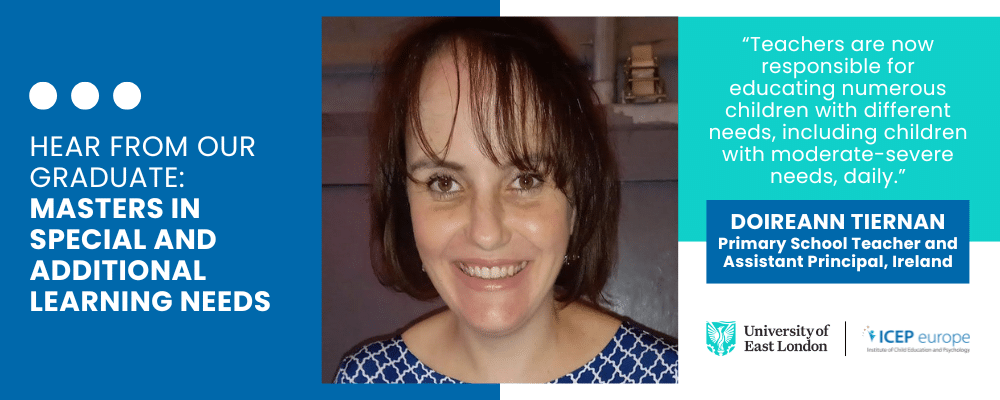
Doireann Tiernan, a dedicated Primary School Teacher and Assistant Principal at a mid-sized school in the West of Ireland, shares her experiences navigating the transition from teaching a small class of nine to managing a lively group of nineteen students. Drawing from her recent Masters in Special and Additional Learning Needs, offered in partnership with the University of East London, Doireann highlights the creative strategies she employs to foster inclusion, prioritise Universal Design for Learning (UDL), and address the diverse needs of her students.
Her journey underscores the joys and challenges of balancing a passion for teaching with the systemic issues that often arise in education. From reimagining classroom spaces to navigating the realities of limited support, Doireann reflects on the resilience required to ensure every child feels supported and valued. Discover more about Doireann’s approach and insights from her research dissertation, “What are the Expectations and Experiences of the Education System in Supporting Children with Special and Additional Learning Needs?” in the following blog.
Nine to Nineteen!
Last year, I had nine children in my class, whereas this year, I have nineteen! When moving desks and chairs back to my classroom, I found myself reminiscing about the space I used to have. I had to downsize the play area, reluctantly remove my lovely tent, and remove furniture used for lunch bags and wet gear. I recall last year when I could easily supervise nine children at the playground and escort them to various areas, whatever the weather. However, I must think creatively to prepare for a big class again.
As usual, I engaged with the pre-school, interacting with our incoming Junior Infants and enabling them to visit the Junior Infant classroom on another day. The preschool teacher provided Mo Scéal reporting templates, and we convened an open day for parents and children. Having recently completed my Masters in Special and Additional Learning Needs, I have gained fresh insights. Prioritising learning through play, connectivity, and UDL is high on my agenda.
I meticulously arranged the classroom with areas for art, playdough, role-play, reading, construction, sand play, colouring, and other activities. I also incorporated a new sensory machine made by my brother. On day one, I welcomed a delightful group of eager, curious, and distinct young individuals to my classroom. Each child, as usual, had a shorter day to facilitate their adjustment. I am grateful that my work doesn’t feel onerous and privileged to engage with these young learners, aiming to inspire and bolster their educational journey.
However, my initial excitement was swiftly replaced by concerns, once again, regarding the inadequacies of the existing system in meeting the diverse needs of my students. Challenges include a child prone to wandering, a few dependent learners, and a child prone to spontaneous outbursts. Anticipating difficulties in securing additional support due to the variety of needs in mainstream classes, I instituted trials for inclusion and reverse inclusion; however, a colleague’s predicament with a new child in her early intervention class, necessitating constant supervision due to ingestion tendencies, has acutely strained our resources. We regrettably had to cancel inclusion plans with the early intervention class and continue with reverse inclusion as usual.
The situations mentioned did not involve prior consultation with other professionals. Our school used to have regular visits from other professionals, but now this responsibility has been shifted to the teachers. Despite having no say, teachers are now responsible for educating numerous children with different needs, including children with moderate-severe needs, daily. The system overload is likely to hurt staff morale.
A TED talk by Joanne O’Riordan, a person born with no limbs, comes to mind. She credited her family, a befriended family, and technology for her success, with no mention of services or schools. Despite this, I believe that these institutions did their best to support her. However, the reality is that the system did not work for Joanne. Regardless, I must stay positive and make the most of the resources I have. I am fortunate to love my job.
We recently had the opportunity to engage with Doireann where she talked about the personal and professional growth that comes from studying the programme, the support available throughout, and tips for making the programme a part of your life:




